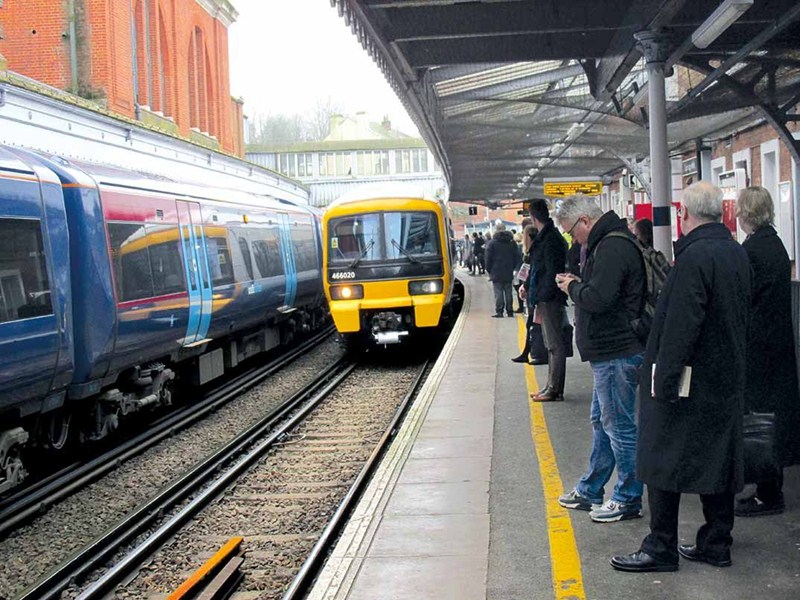Commuters angry with failing services will be surprised to learn that Southeastern is making millions of pounds in ‘profit’ a year when their trains don’t run or are not on time.
The operator claims a refund for money paid to Network Rail when it fails to deliver services. Southeastern only passes on some of that refund to passengers who claim for disrupted services.
The operator received in total last year £19million; made up of £12million for ‘planned’ disruptions and £7million for ‘unplanned’. It paid passengers £1.35million, according to Department for Transport figures.
More than 17,000 people have so far signed an online petition calling for the franchise to be taken away from Southeastern.
The petition claims the operator ‘lets down their paying customers, cancelling trains strategically so they don’t have to pay refunds, whilst making £12m in profit. Their customer service is beyond useless and the people of the South East have suffered for long enough.’
Although the difference between compensation received by Southeastern and paid out by them is not pure profit, as the operator has to incur extra costs when services are disrupted, it is believed there is a surplus.
Only a fraction of the Network Rail compensation is passed on to passengers, in what has been described as one the ‘least generous’ compensation schemes of any network operator.
Under current procedures, Network Rail is compelled to compensate Southeastern for any delays or disruption caused by the publicly-owned infrastructure company.
Defending the compensation scheme, a spokesman for the Rail Delivery Group, which represents train operators and Network Rail, said the two sets of compensation should be treated as ‘entirely separate’.
He said: “The payments scheme between Network Rail and train operators is designed to ensure that neither side is left out of pocket by disruption and delays that are the other’s fault.
“In order to obtain maximum value for the taxpayer from the franchise competitions, there is an automatic system of payments to ensure operators are not financially disadvantaged when their trains are disrupted by other parties.
“These payments are entirely separate from, and different to, payments to passengers.
“Train companies are paying out more in compensation for delays and making it easier to apply for.”
Money paid by Network Rail to Southeastern is spent on operational costs such as running bus replacement services and providing staff, he added.
But despite acknowledging a sizeable amount of compensation will have to be spent covering Southeastern’s own costs when there are delays, commuter groups said the operator is still under-compensating passengers.
John Reynolds, Vice-Chairman of Tonbridge Line Commuters, said: “What we find annoying is Southeastern operates the least generous compensation scheme relative to other operators.”
He points out that the formula used by the operator is based on the assumption that commuters make an average of 546 individual journeys each year. This compares to the average figure of 520 for most operators and 464 for the most generous, Cross Country. The higher the number the less compensation is paid.
This effectively means that annual season ticket holders will be paid out just 1/546 of their total season ticket costs for each relevant delay. Passengers have to apply for a refund, too.
A Tunbridge Wells to London season ticket currently costs over £4,400, meaning average compensation of £8 per delay.
Mr Reynolds added: “Southeastern is calculating that passengers use the trains on 273 days per year, i.e. over weekends and during their holidays.
“It seems unlikely that many commuters spend their holidays going to and from London.”
MP Greg Clark said: “Given the price of rail tickets, everyone should reasonably expect a good service but recently it’s been appalling.
“There is no way that Southeastern should profit from this disruption. Every penny of compensation paid to Southeastern by Network Rail beyond, for example, putting on replacement buses, should be returned to passengers.
“The Managing Director of Southeastern is coming to my public meeting in Tunbridge Wells tomorrow [Thursday] and I will ask him to account for the discrepancy.”
The meeting with Southeastern takes place at 8pm on Thursday at Tunbridge Wells Town Hall.
To register for a free place email: gregclarkmp@parliament.uk








